Currently, the loss of all teeth is a common issue that affects numerous individuals, leading to both practical challenges, like difficulties with eating and speaking, and emotional distress, including reduced self-esteem. Full-mouth dental implants present an innovative solution for those affected, providing a way to restore a complete, functional smile. Discover everything about the process, the materials utilised, and the enduring advantages of full-jaw dental implants.
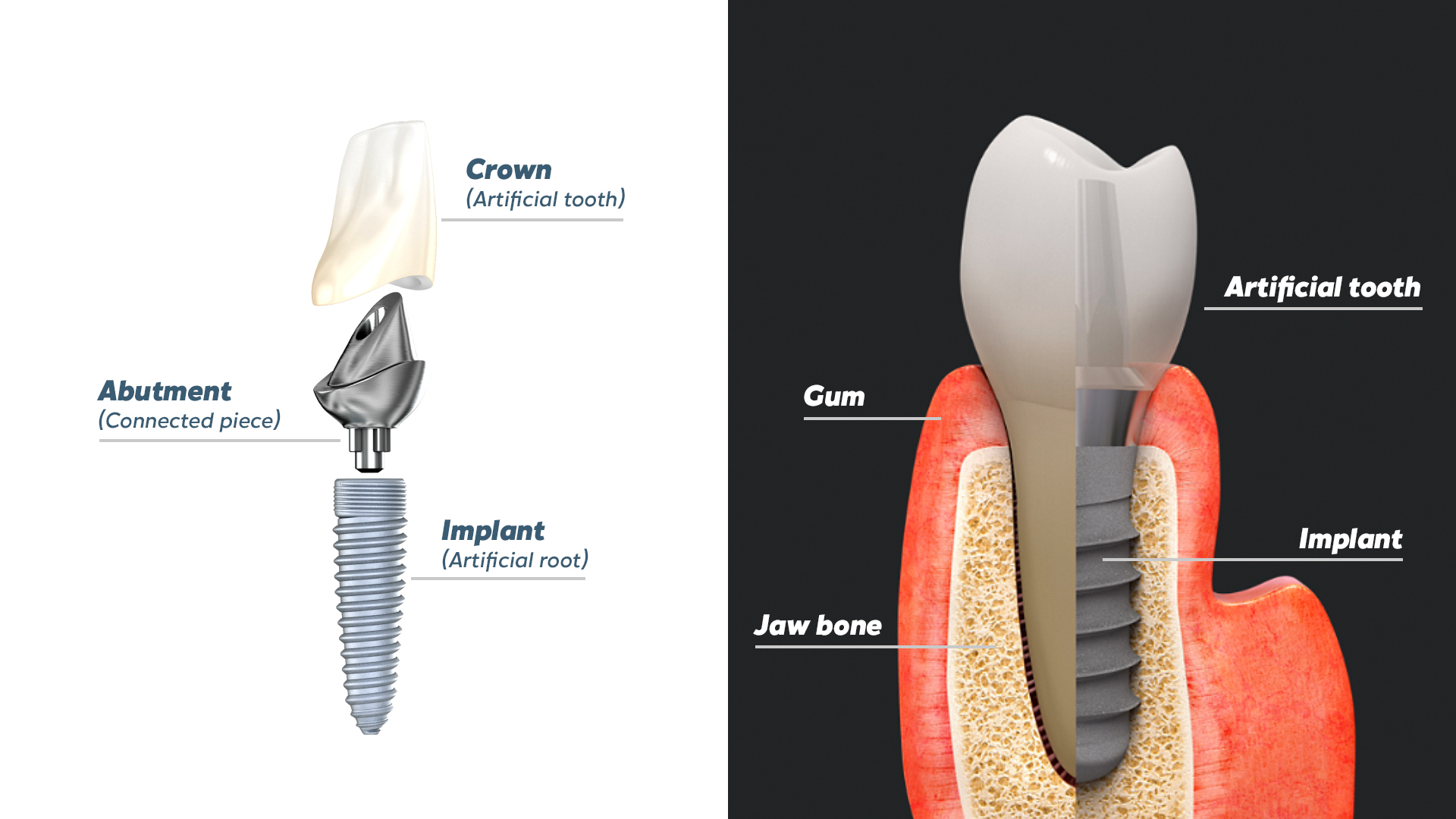
What is a full-mouth dental implant?
A full mounth dental implant system, also known as “all-ons”, revolutionises tooth replacement by using a series of titanium implants anchored directly into the jawbone. This advanced prosthetic technology replaces all the teeth in a jawbone, supporting a fixed prosthesis to replace missing teeth. In contrast to traditional removable prostheses, such as dentures, full dental implants offer a permanent, stable, and comfortable solution for those missing all their teeth on one or both jaws.
The system comes in various configurations, including All-on-4, All-on-6, and All-on-8, each denoting the number of titanium implants used to support the prosthetic arch:
- The All-on-4 system involves placing four implants in the jaw, with the rear implants angled to maximise bone contact and improve the distribution of chewing forces. This method is popular in the UK for its lower cost and the potential to avoid dental bone grafts. However, it may offer less comfort and durability compared to other options.
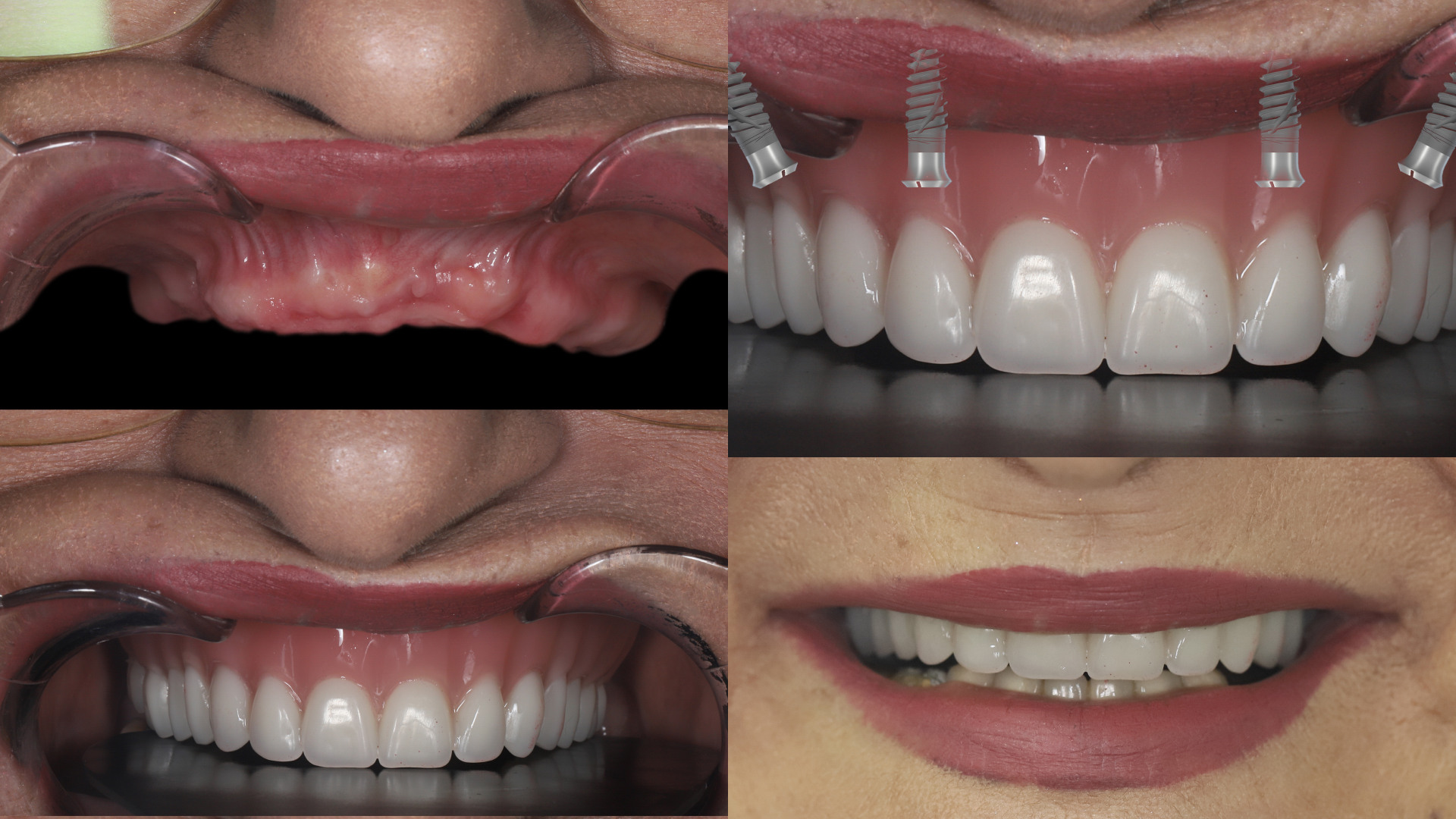
- The All-on-6 system uses six implants, providing a more even force distribution across the jaw. It strikes a balance between cost and comfort, making it an excellent value for those seeking a blend of affordability and comfort.
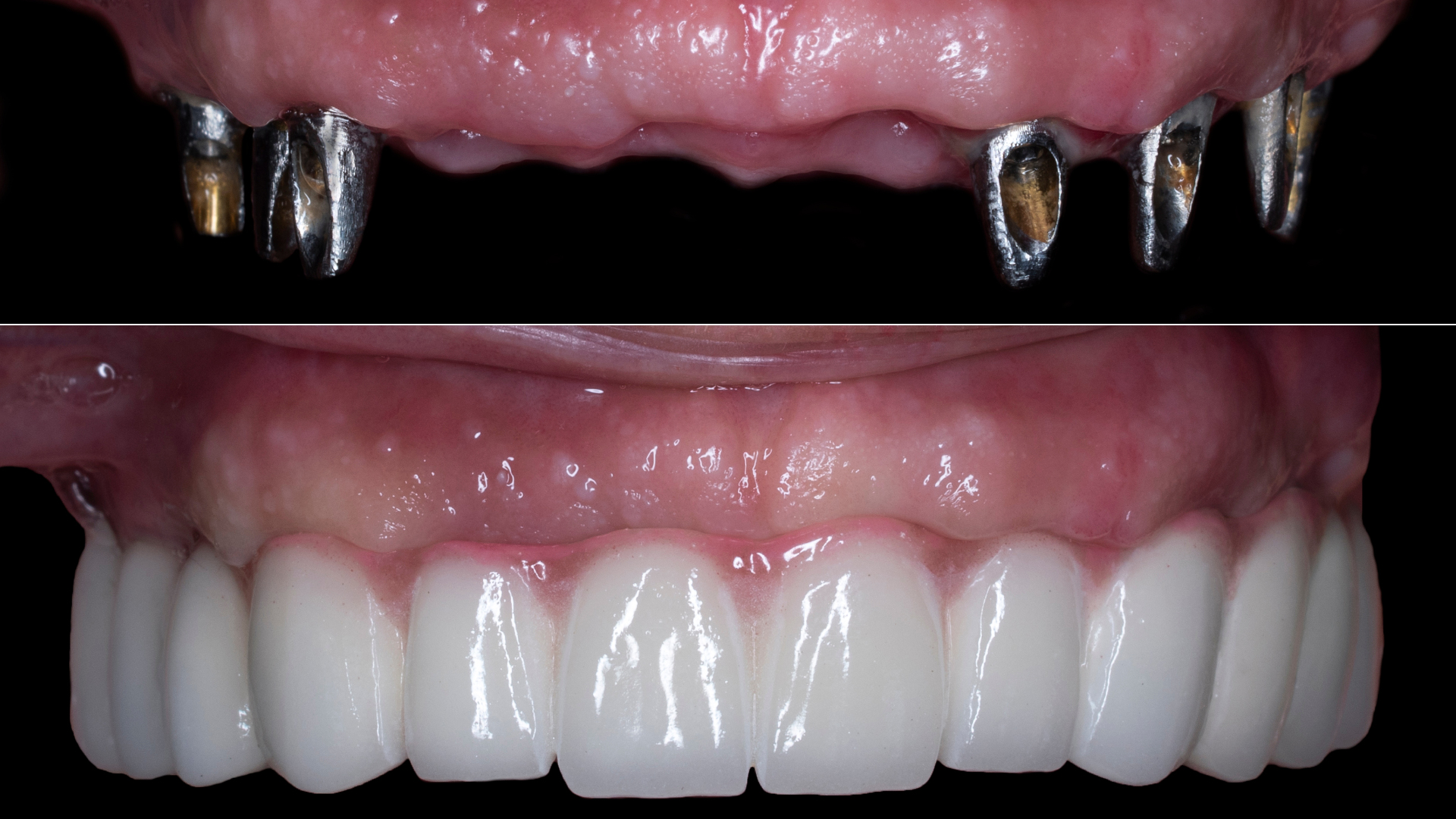
- The All-on-8 system utilises eight implants for the strongest and most balanced force distribution across the prosthetic arch. Recommended for patients with adequate bone density, it is the most comfortable option, though it comes with a higher price tag.
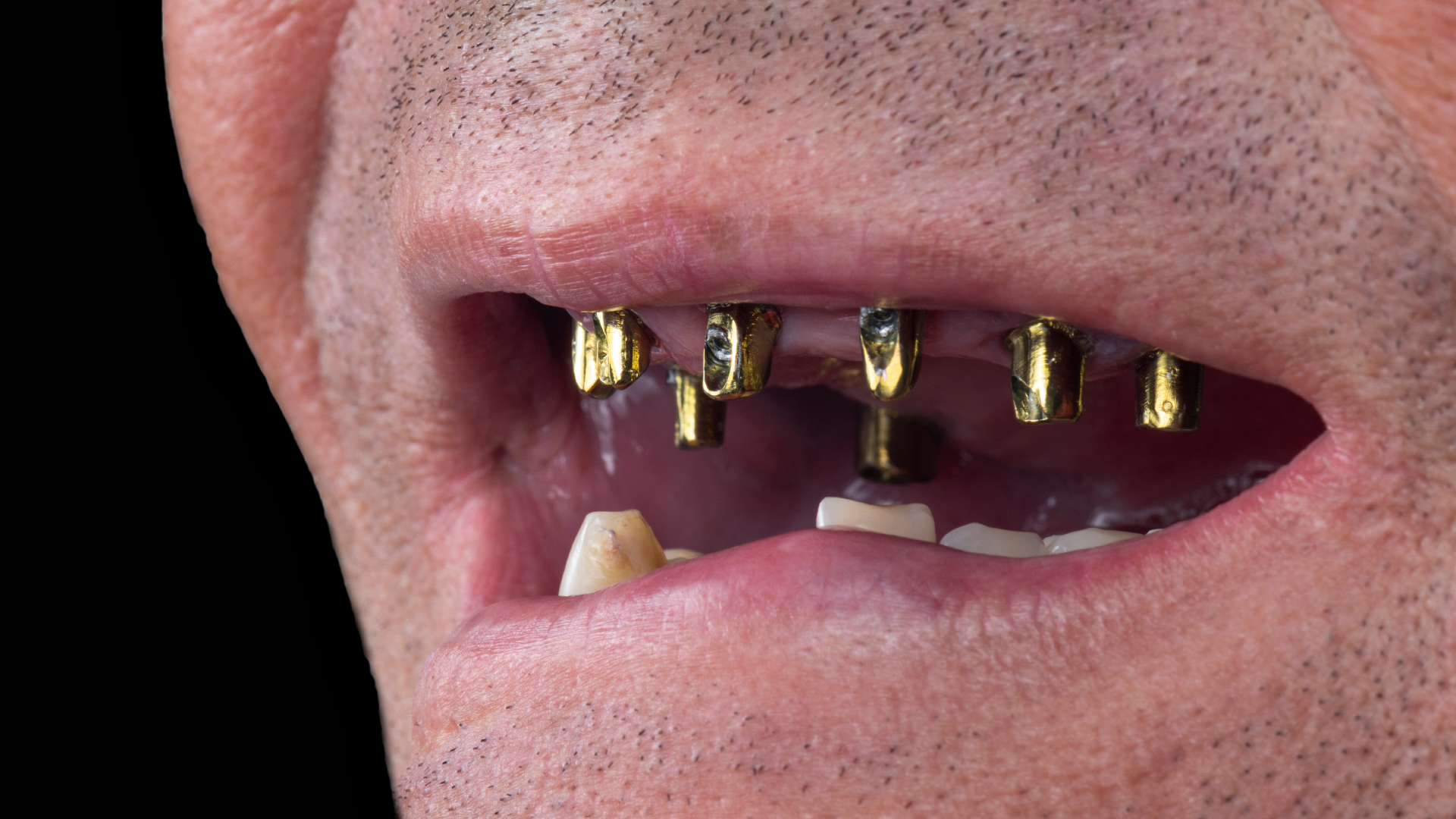
During surgery, axial (vertical) and angled implants are inserted into the jawbone. Inclined implants are particularly useful for avoiding sensitive anatomical structures and providing additional stabilisation where the bone is less dense.
After implant placement, a healing period is required to allow osseointegration, where the bone fuses with the implants. Once this stage is complete, a prosthetic arch is attached to the implants, providing a new fixed and functional dentition that restores the patient’s appearance and ability to chew.
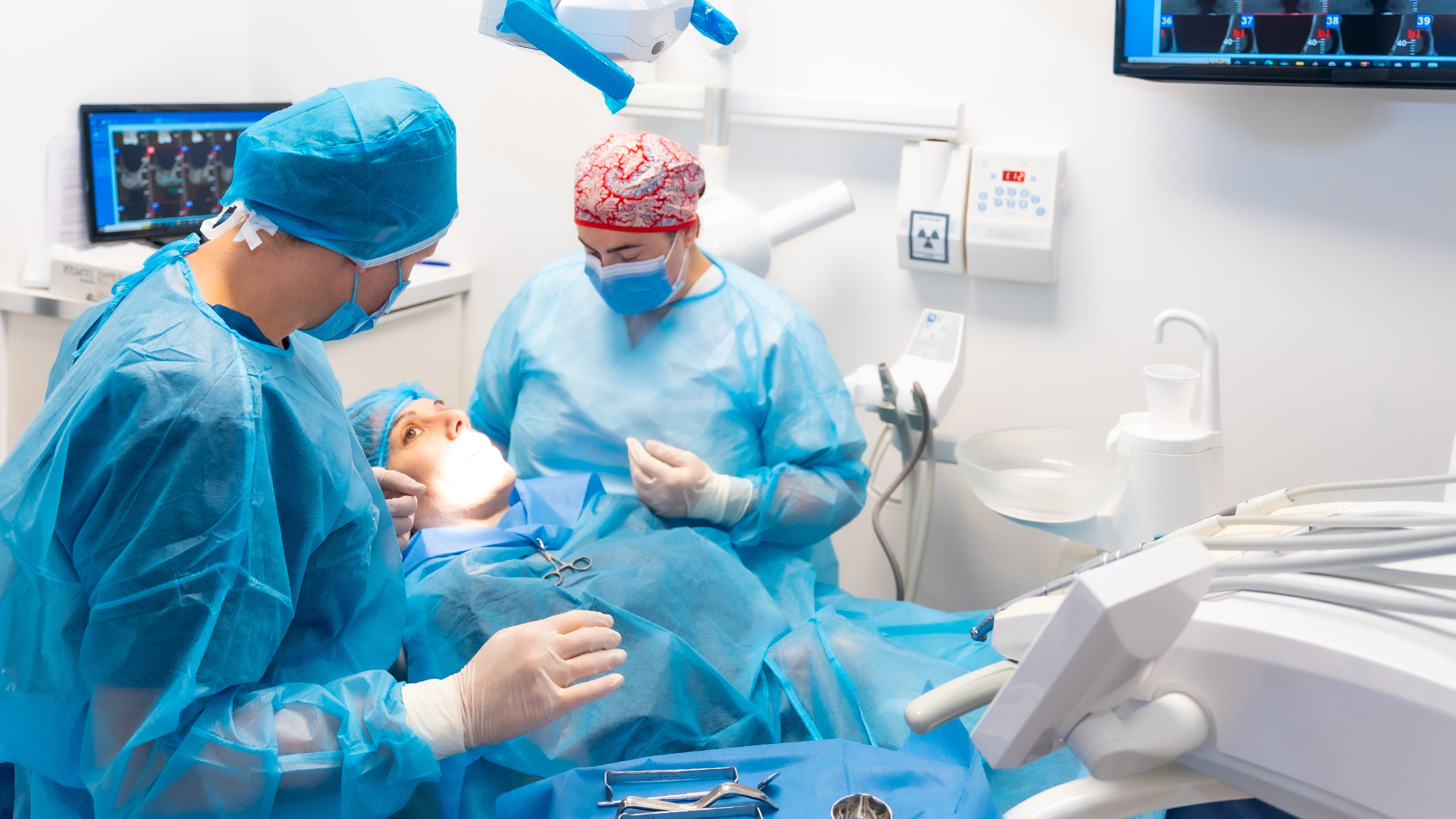
These complete implant systems offer several advantages over traditional dentures, including improved functionality, increased comfort and a natural appearance, significantly improving patients’ quality of life.
Why choose a full-mouth dental implant?
Choosing the full jaw dental implant over traditional removable dentures offers multiple advantages that can significantly improve the patient’s quality of life in several aspects:
- Comfort: unlike removable dentures, which can slip or cause irritation and sores due to friction, full-mouth dental implants are firmly anchored in the bone, eliminating denture movement and reducing gum irritation.
- Chewing: Implants offer chewing strength similar to natural teeth, enabling patients to eat a much wider range of foods, including hard or crunchy foods, which can improve nutrition and eating pleasure.
- Phonation: removable dentures can sometimes alter speech by slipping or creating a gap that alters sounds. Full dental implants are stable, facilitating pronunciation and clarity of speech.

- Aesthetics: full mouth dental implants are designed to resemble natural teeth, with particular attention paid to aesthetics, from tooth colour to shape, to create a natural, attractive smile.
- Bone preservation: implants stimulate the jawbone, reducing the bone resorption that often occurs with tooth loss. This helps maintain facial structure.
- The principle of immediate loading: Sometimes, a temporary prosthesis can be fitted on the same day as the implants. This allows patients to benefit from improved functionality and aesthetics without waiting for the osseointegration process, which can take several months.
Full dental implants offer a fixed, durable and more comfortable solution than removable prostheses. They restore optimal dental function and maintain the structural integrity of the jaw while delivering an aesthetically pleasing smile.
How does full-mouth dental implant treatment work?
Full jaw dental implant treatment is a meticulous, structured process that takes place in several key stages:
Preliminary examination
The first step is a comprehensive examination, which usually includes X-rays or a 3D scan of the jaw to assess the quantity and quality of available bone. This enables the dentist to plan implant placement and precisely identify the patient’s needs.
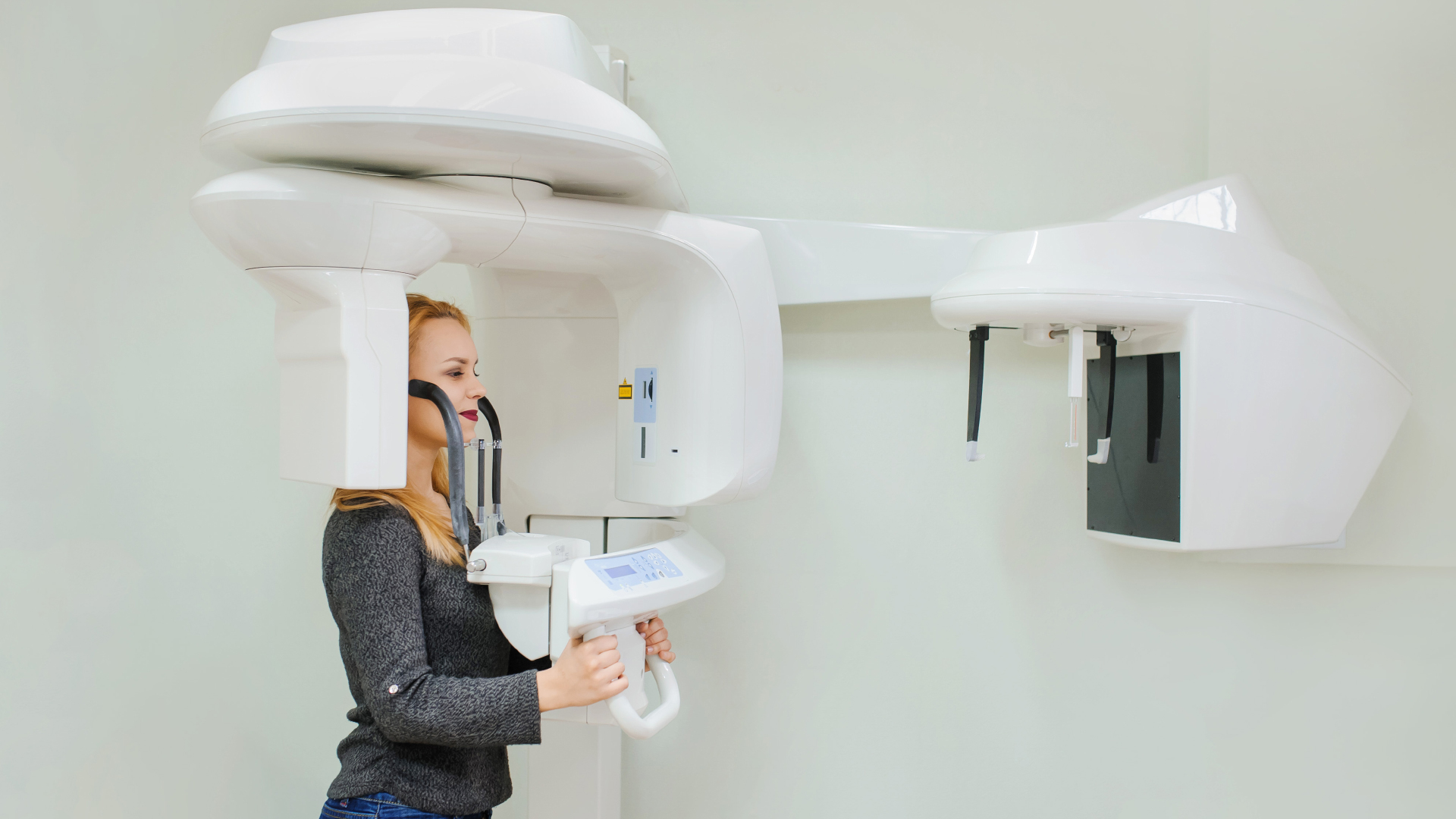
Treatment planning
Based on the results of the examinations, the dentist draws up a personalised treatment plan. This plan details the number of implants required, their position, and the appropriate type of prosthesis.
Surgery
Under local or general anaesthesia, the dental surgeon places the implants. Incisions are made in the gum to access the jawbone, where holes are prepared to receive the implants. Axial implants are placed vertically, while angled implants are inserted at an angle to optimise contact with the bone and avoid sensitive anatomical structures.
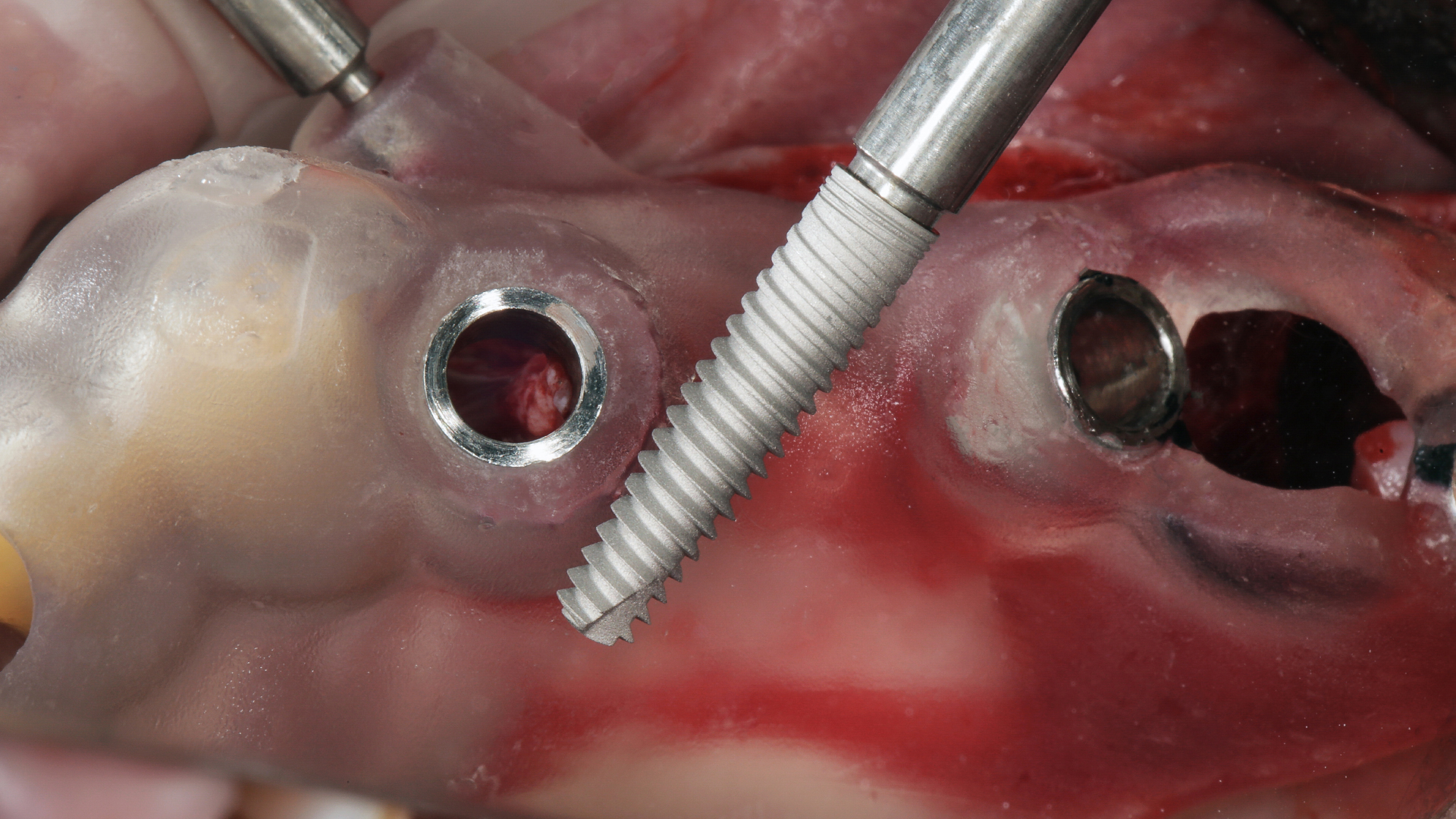
Provisional prosthesis
Depending on the immediate loading technique, a provisional denture can be attached to the implants on the same day as the surgery. This ensures that the patient does not remain edentulous during the healing period and also promotes better tissue healing.
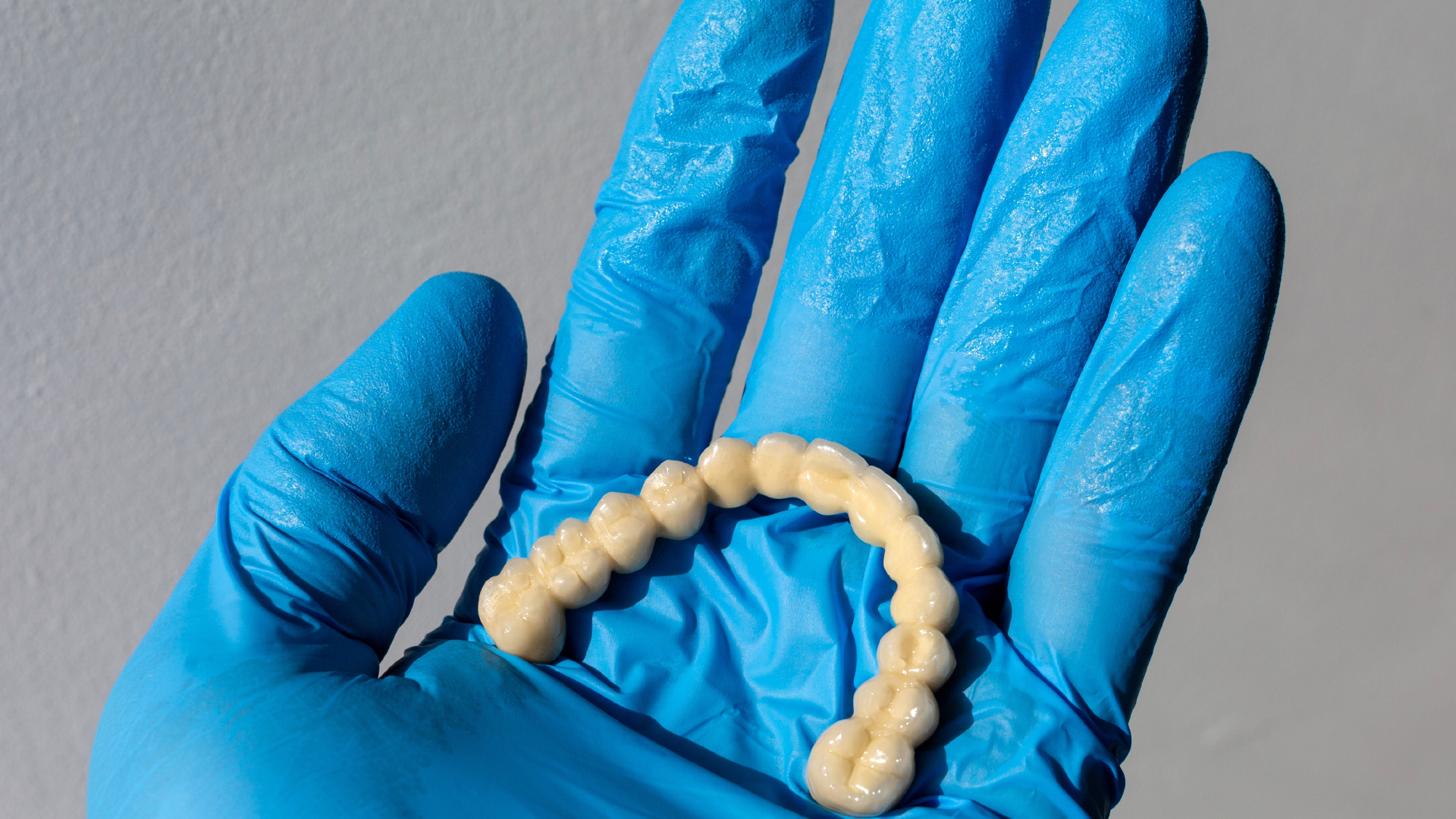
Healing period
After implant placement, a healing period is required for osseointegration, which is the process by which bone bonds to implants. Depending on the case, this period can vary from a few weeks to several months.
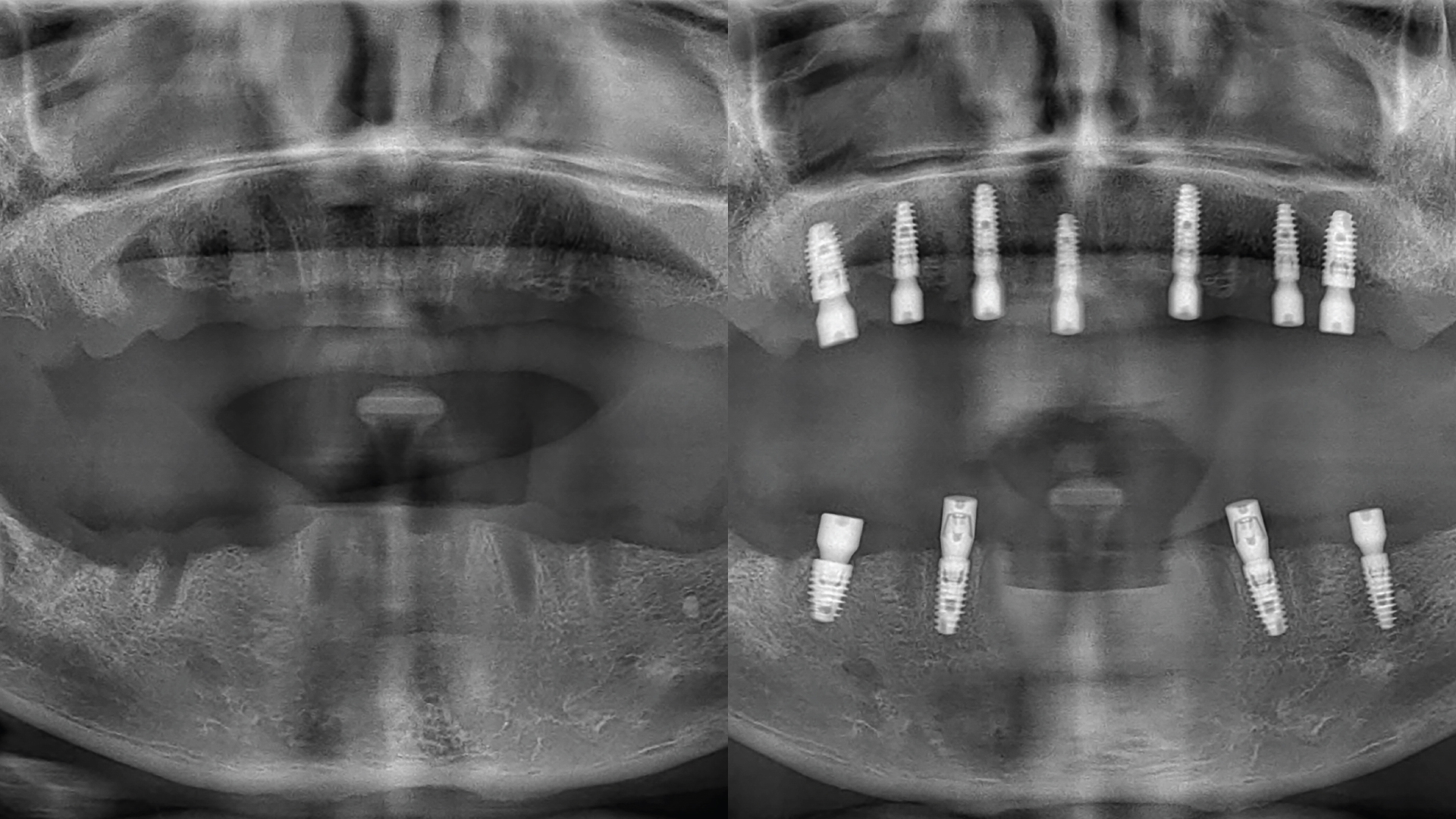
Final prosthesis
Once the implants are securely integrated into the bone, the dentist replaces the provisional prosthesis with the definitive denture. The latter is custom-made to fit the patient’s mouth perfectly and to match the desired aesthetics.
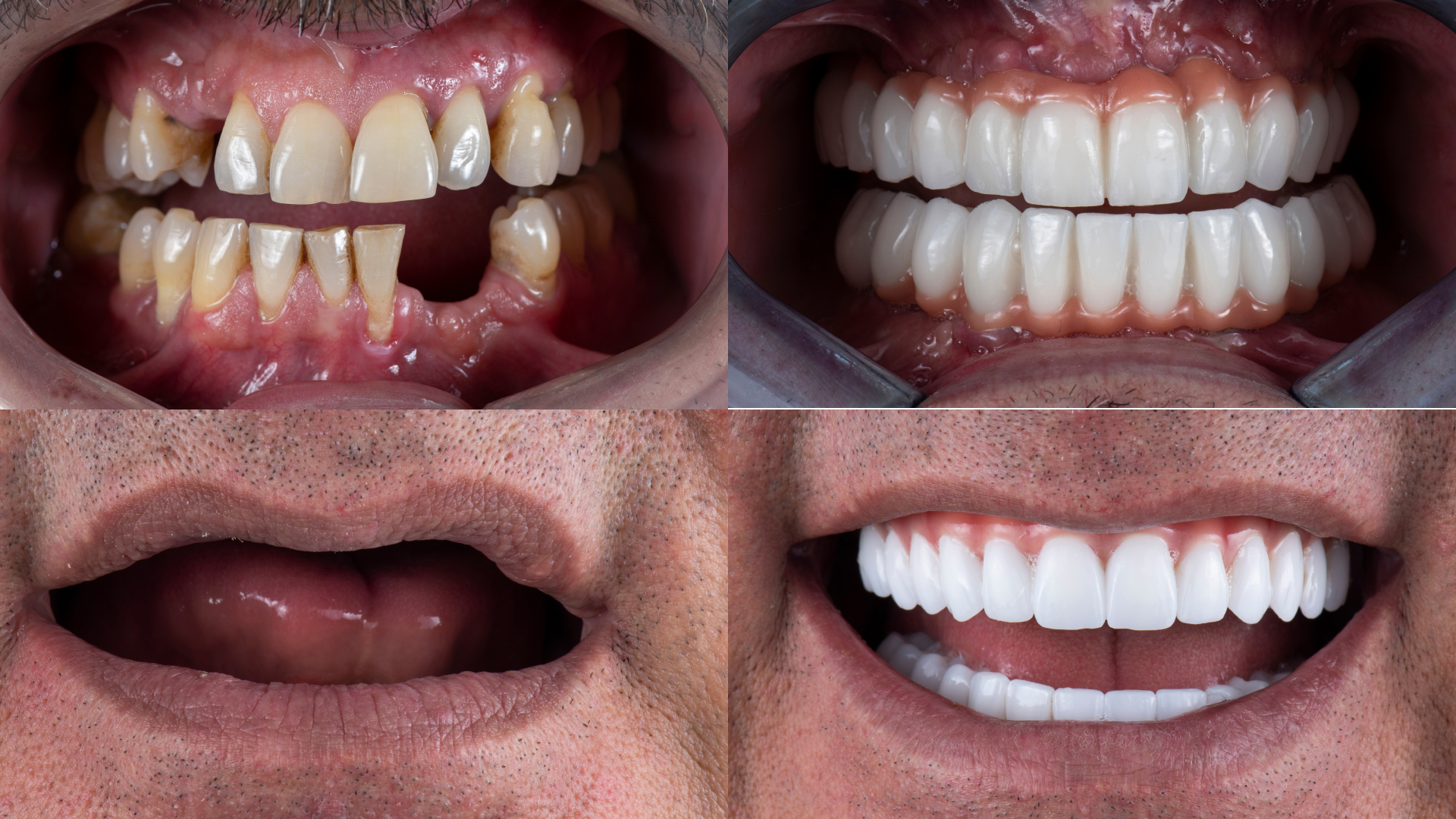
Immediate prosthetic rehabilitation
In certain cases where bone conditions and implant stability allow, immediate prosthetic rehabilitation is possible. This means that the patient leaves with fixed teeth on the same day as the procedure.
Why choose Body Expert for your full dental implants in Turkey?
- Full Care in English: Communication is key to a successful dental treatment experience. Body Expert prioritises seamless and transparent communication, providing comprehensive support in English from the initial consultation to the post-operative follow-up. This ensures a stress-free journey where you are fully informed and comfortable at every step.
- Significant Cost Savings: Investing in full dental implants is a major decision for your health and well-being. With Body Expert in Turkey, you can achieve savings of up to 70% compared to prices in The UK without compromising the quality of care. These competitive prices make high-quality dental care accessible, allowing you to save significantly while receiving top-level treatment.
- Expert Surgical Care: Our team of dentists, specialising in full dental implants, ranks among Turkey’s most skilled and experienced professionals. Their deep expertise, combined with the use of premium-grade materials and cutting-edge technology, guarantees outstanding aesthetic and functional outcomes for your new smile.
- Rapid and Efficient Treatment: Recognizing the importance of reducing both inconvenience and waiting times, Body Expert is dedicated to delivering complete dental implant solutions swiftly and efficiently. Our commitment means you can enjoy the benefits of a renewed smile sooner than you might expect, restoring the comfort and appearance of your teeth with minimal delay.
Beyond exceptional dental treatment, opting for Body Expert affords you a distinctive experience in the vibrant country of Turkey. We handle all aspects of your medical journey, from accommodation to transportation, enabling you to focus on your recovery while also experiencing Turkey’s rich culture and scenic beauty.
Which solution to choose: All-on-4, All-on-6, All-on-8?
The All-on-4, All-on-6, and All-on-8 techniques are progressive solutions in dental implant technology designed to accommodate varying degrees of bone density and patient needs, offering a range from basic to the most advanced option for full jaw rehabilitation.
All-on-4
The All-on-4 Technique is particularly suited for patients experiencing significant bone loss who prefer to avoid the complexities of dental bone grafting. This method’s strategic angling of the posterior implants allows for optimal utilisation of the existing bone. This approach is less invasive and more cost-effective than other full dental implant options, reducing the necessity for bone grafting. However, it may be perceived as less comfortable and slightly less durable than its more extensive counterparts.
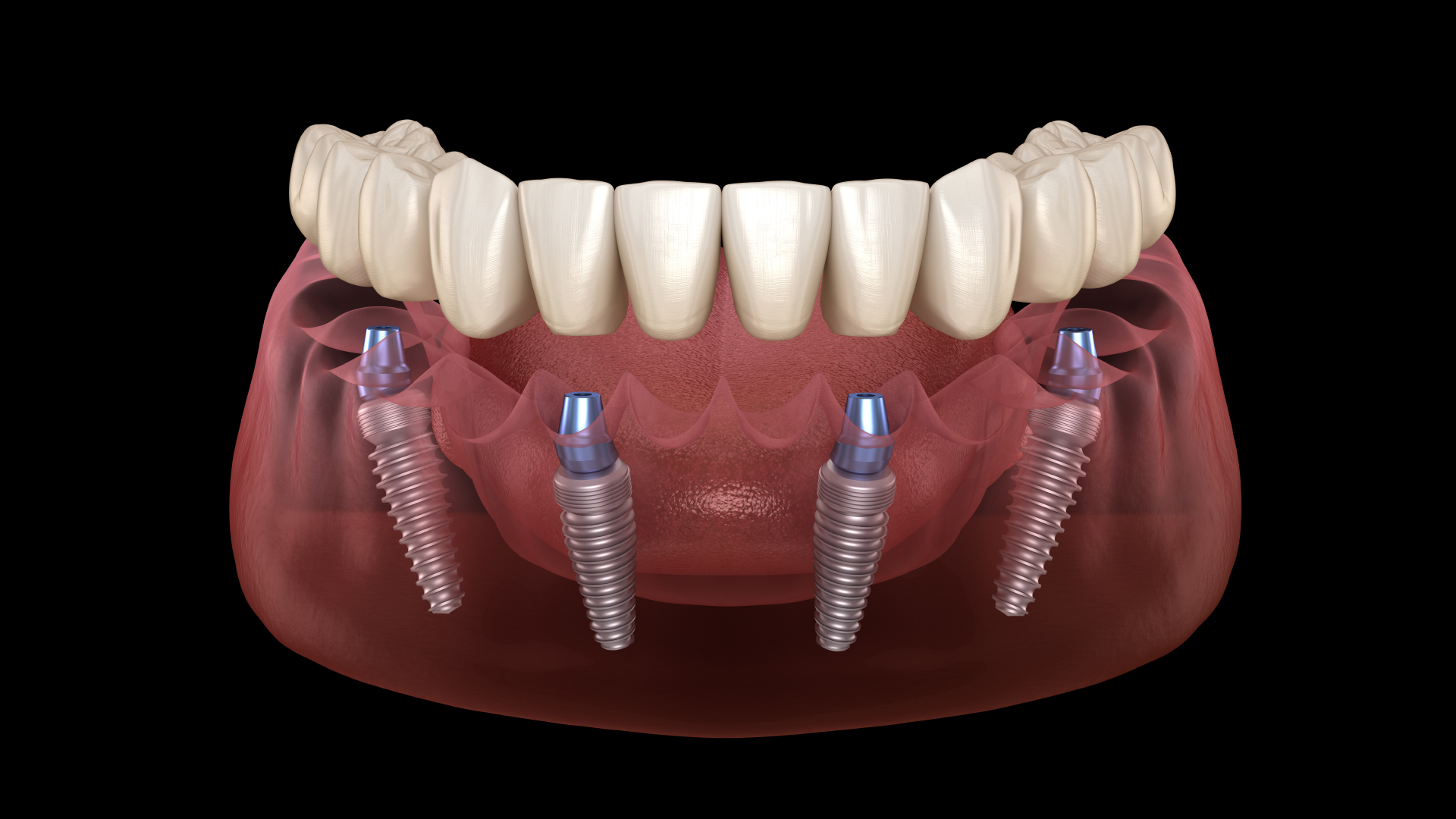
All-on-6
The All-on-6 Option is a middle-ground solution, ideal for patients with adequate bone to support six implants directly or candidates for bone grafting to enhance bone volume. By providing a more even force distribution, the All-on-6 enhances stability and comfort during chewing, making it an excellent value proposition for those seeking a blend of affordability, comfort, and functionality.
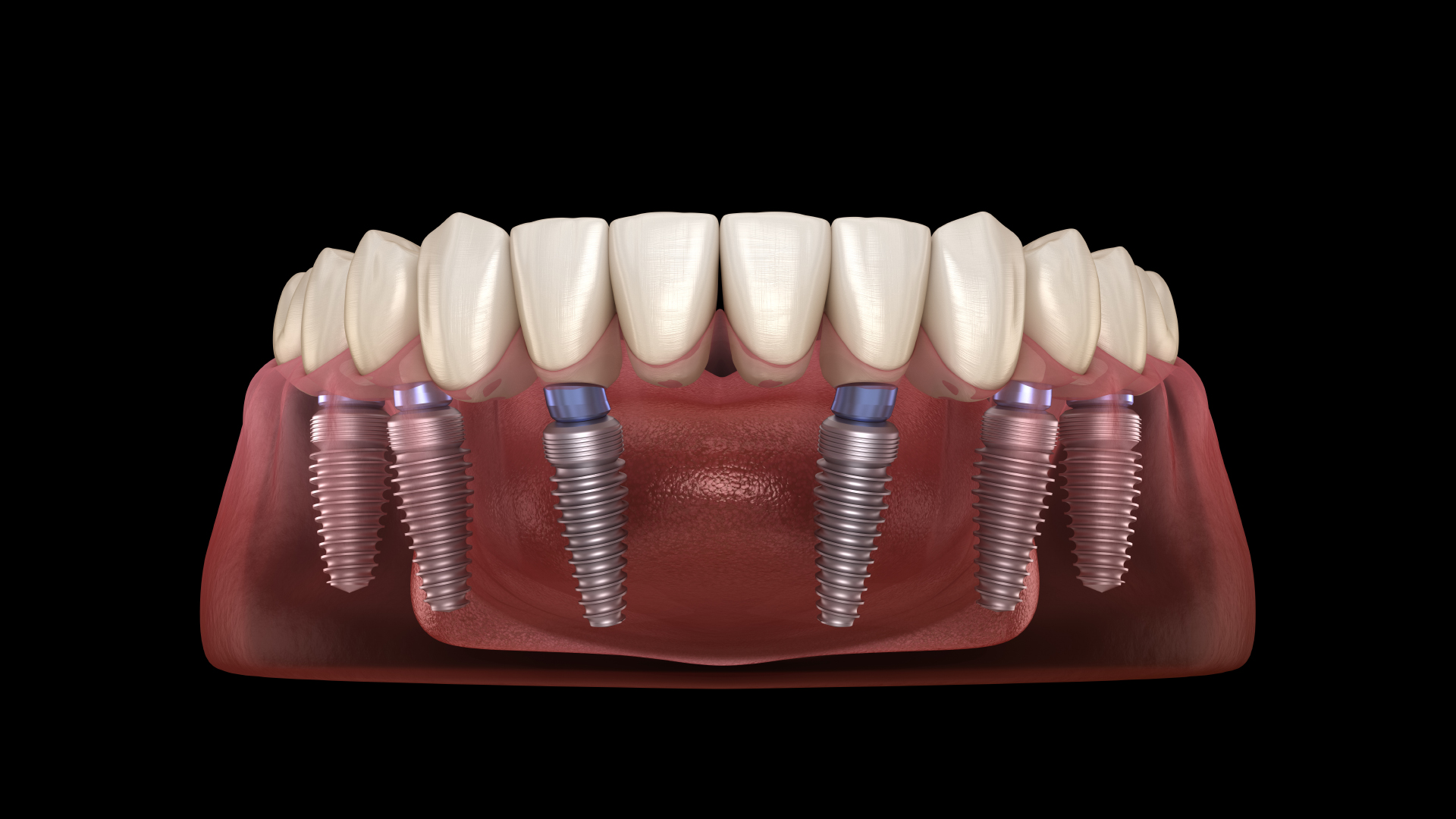
All-on-8
The All-on-8 System is recommended for individuals with high bone density, offering the highest level of stability and the most equitable distribution of chewing forces across the jaw. This option is geared towards patients desiring the pinnacle of functionality and aesthetic outcomes, representing the most comprehensive solution in full jaw dental implantation.
To determine the most appropriate solution, the dental surgeon will assess all aspects of the patient’s oral health and his or her expectations regarding results. The final choice should result from a thorough discussion between patient and dentist, considering each option’s benefits, potential risks and financial implications.
Aesthetics and functionality restored
Full mouth dental implants offer remarkable aesthetic results, restoring to patients a full smile and the look and feel of natural teeth. The customised design of the prosthesis allows the teeth’ shape, size, and colour to be adapted to harmoniously complement the facial features, restoring the aesthetic harmony of the smile.

Aesthetics aside, the functional benefits of full dental implants are significant. Chewing becomes efficient and natural again, enabling patients to enjoy a varied diet and rediscover the pleasure of eating without the drawbacks associated with removable prostheses, such as slipping or irritation. Patients often notice improved digestion and general health thanks to better chewing.
Phonation is also greatly improved. Implants stabilise the prosthesis, giving greater control over speech and reducing the risk of whistling or slurred speech. Patients regain self-confidence in social interactions thanks to clear speech and an aesthetic smile, contributing to a better overall quality of life.
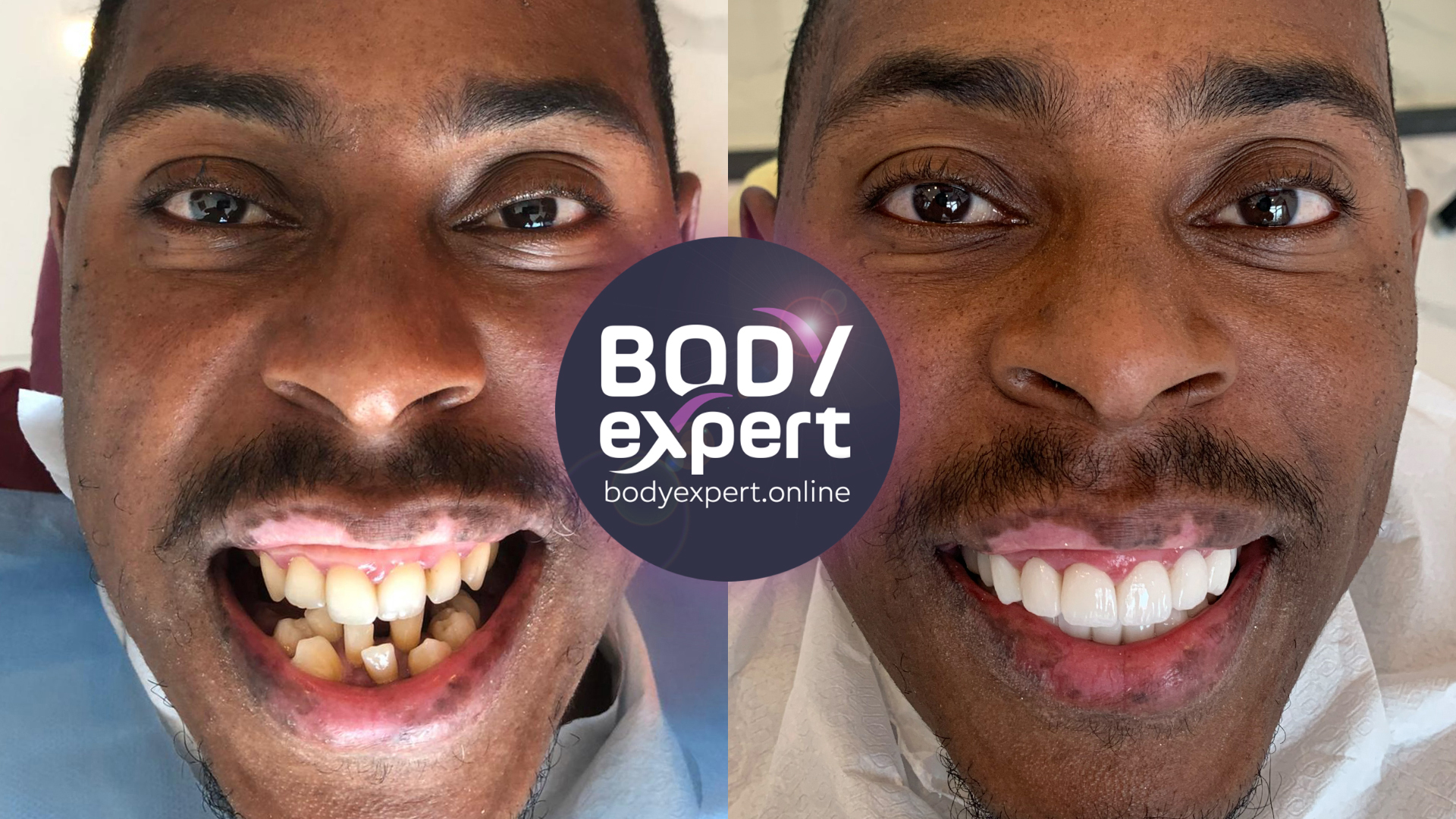
Long-term follow-up
Long-term maintenance and follow-up are crucial to the longevity and success of full dental implants. Rigorous oral hygiene is essential; it includes brushing teeth after every meal and using dental floss or dental brushes.
Regular check-ups with the dentist are essential. These visits monitor the health of implants and surrounding tissues and provide professional cleanings to remove plaque and tartar that could accumulate and cause infections, such as peri-implantitis.
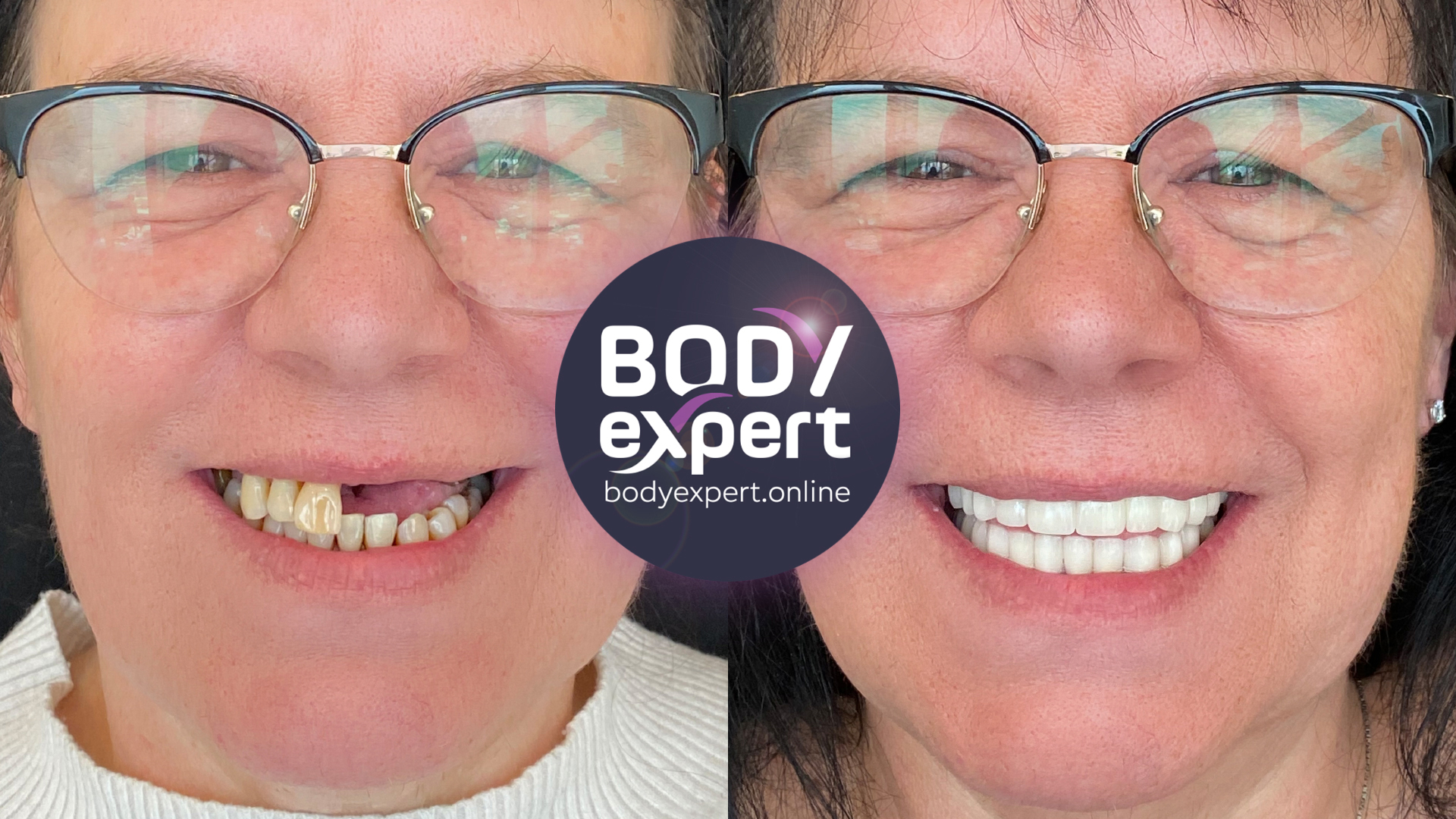
The durability of implants can vary according to the care provided and the patient’s oral conditions. On average, implants are expected to last between 15 and 20 years. However, with careful maintenance and healthy lifestyle habits, implants are not uncommon to last even longer. It should be noted that factors such as smoking, chronic illness or poor maintenance can reduce the longevity of implants.
Finally, long-term success also depends on following the dentist’s advice and communicating with the dental team, who can adjust maintenance recommendations as the patient’s oral health evolves.
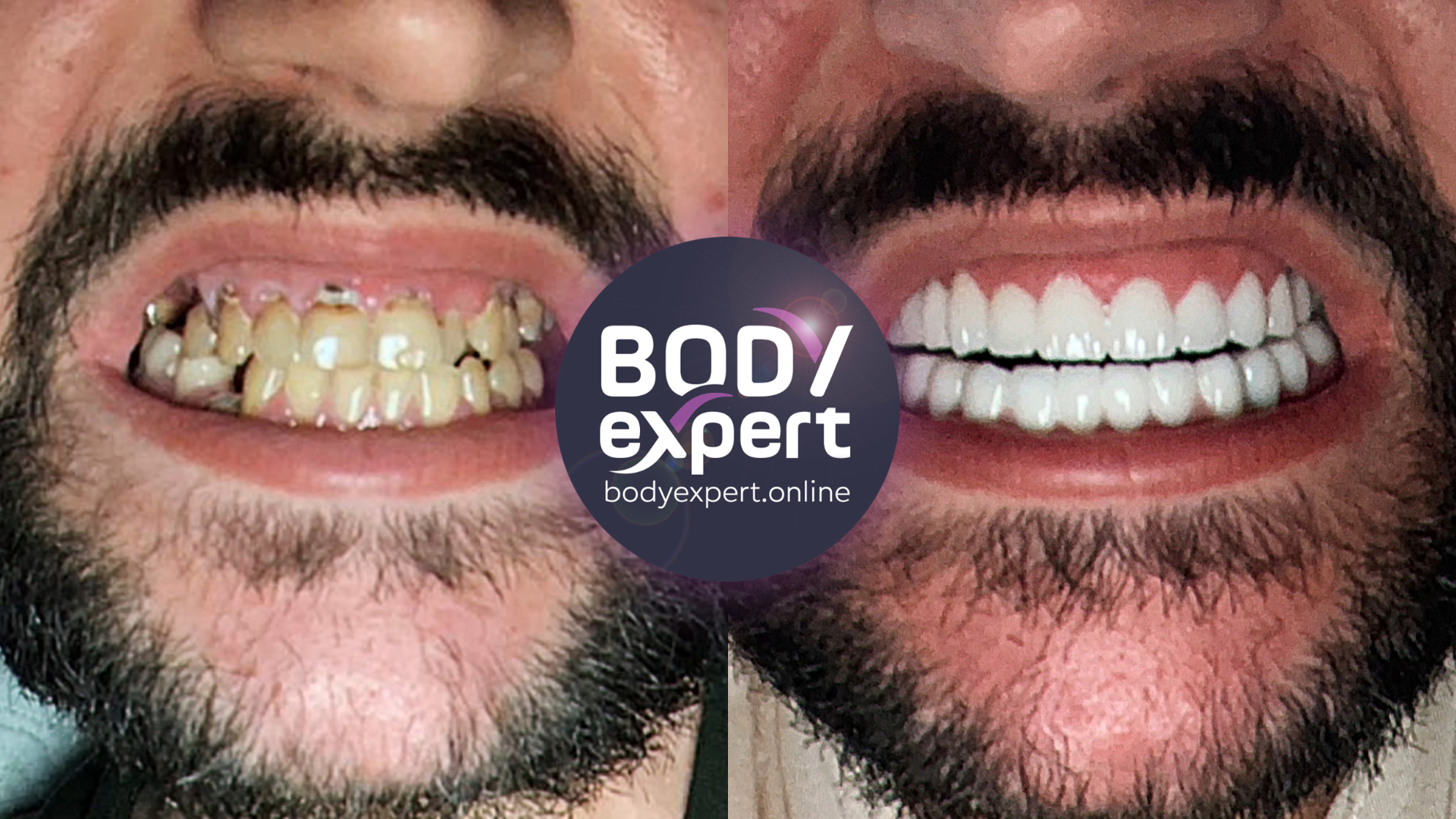
Full dental implants represent a revolutionary solution for those who have lost all their teeth, offering considerable functional and aesthetic benefits.
This advanced technology ensures far greater stability and durability than traditional dental prostheses. It also provides valuable support for the jawbone structure, preserving the natural appearance of the face. With proper maintenance and regular check-ups, implants can last for many years, even a lifetime.
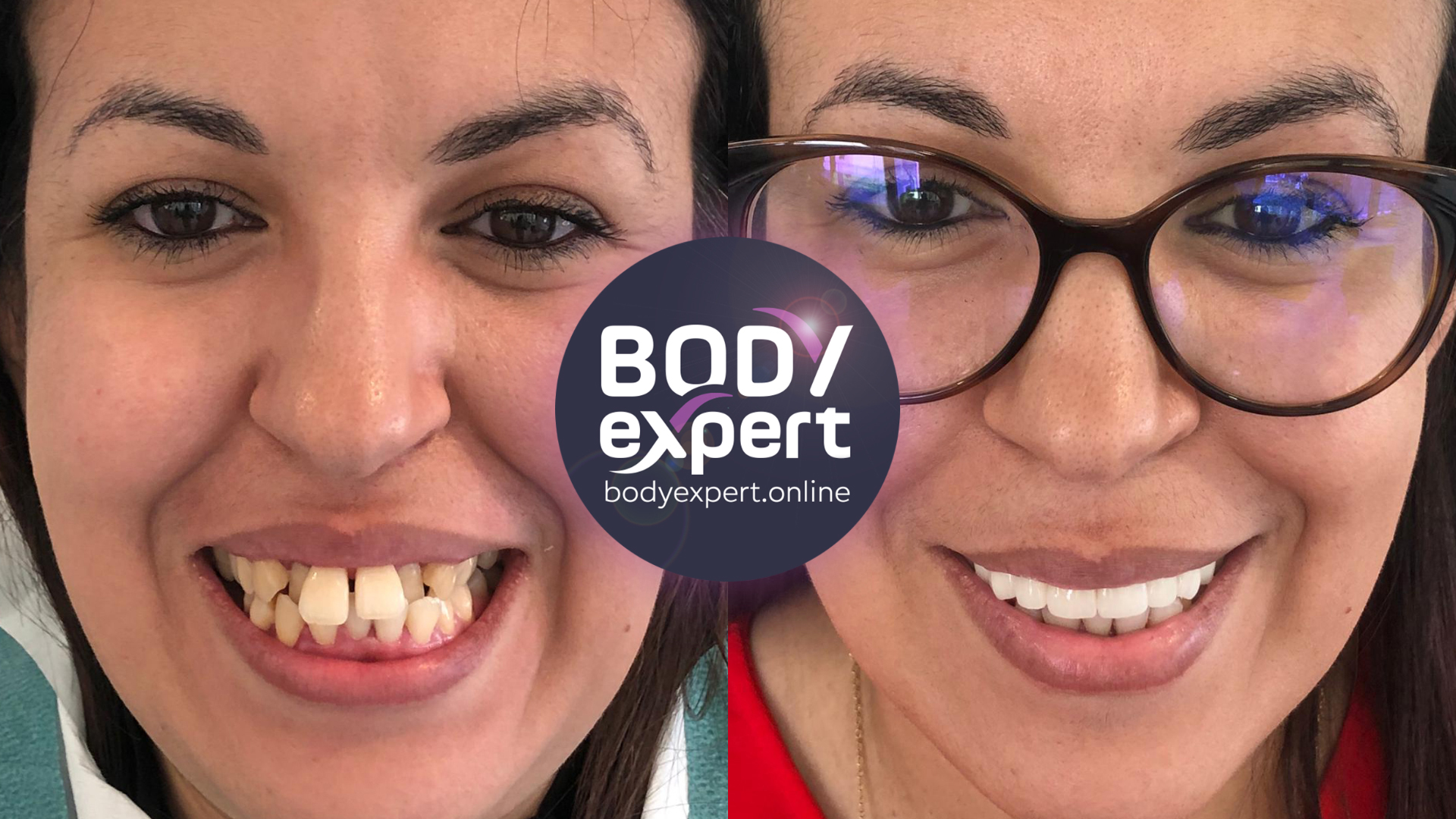
Would you like to enjoy all the benefits of full dental implants? Make an appointment with Body Expert for a personalised assessment. Because every smile is unique, our team can advise you on the best approach to meet your needs and expectations. Contact Body Expert today to start your journey to a new smile.
Sources :
12486 vues
0 commentaires
0


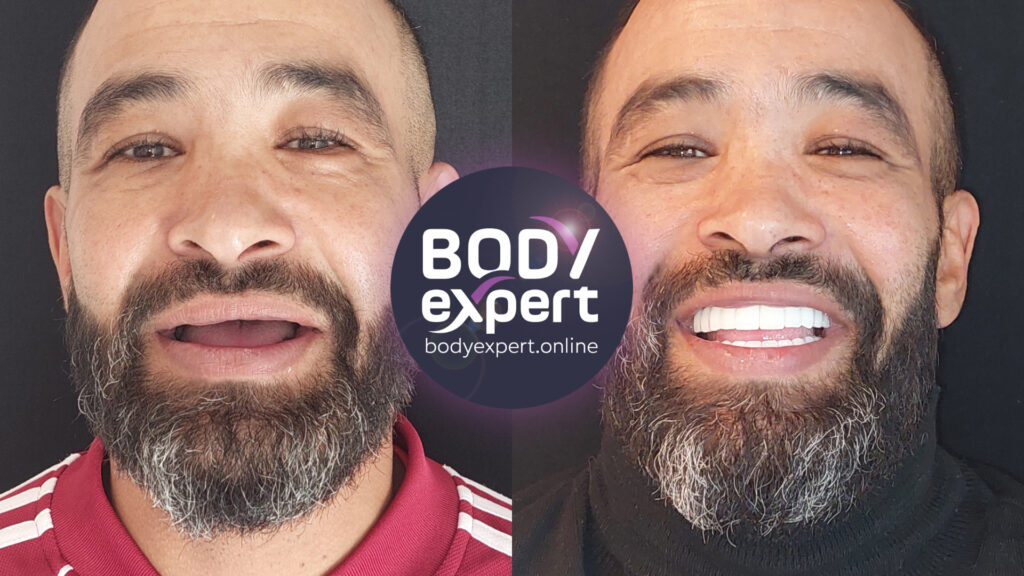
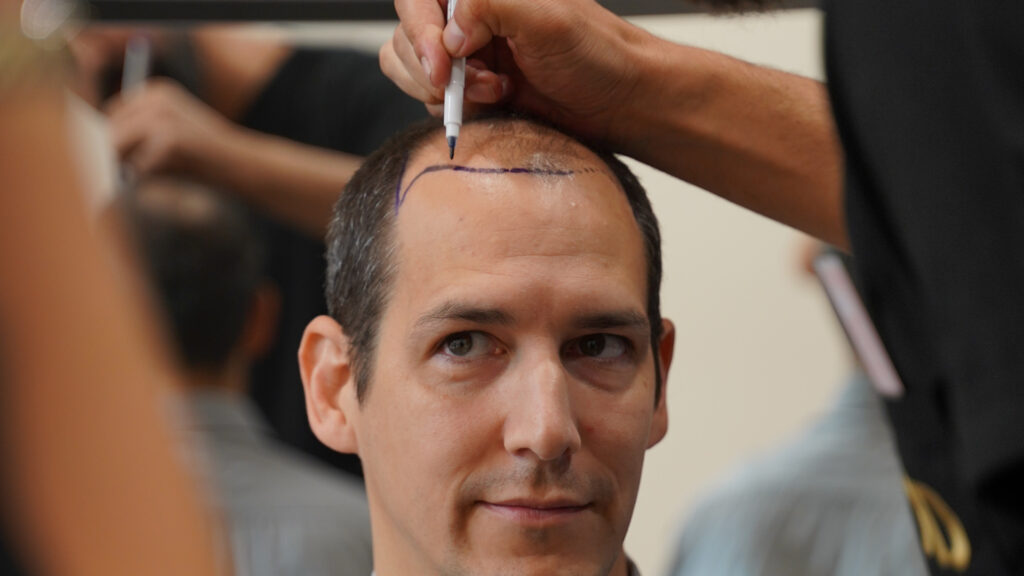


Il n'y a pas de commentaires pour le moment.